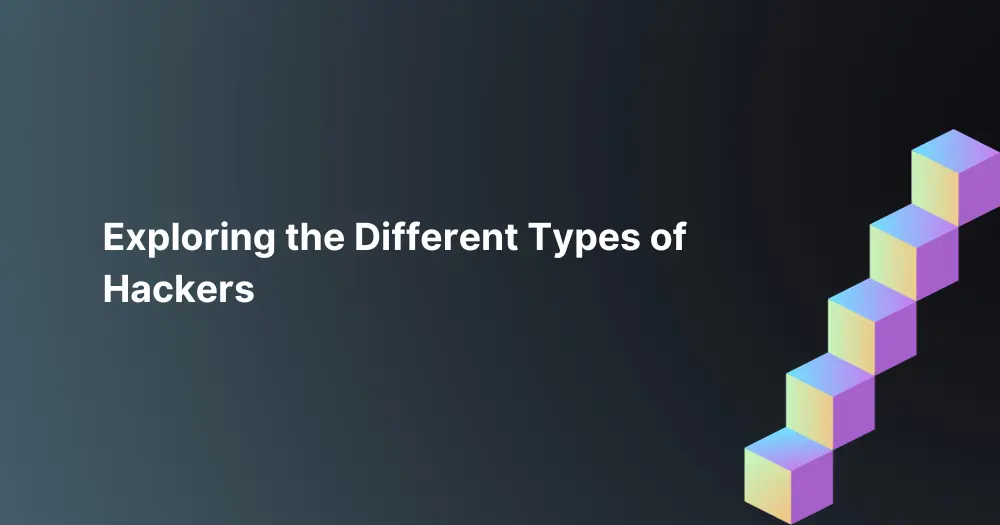Businesses today have been heavily dependent on online platforms for their day-to-day operations. Digital transformation has opened new possibilities, enabling you to reach a wider audience, streamline processes, and enhance customer experiences. While this shift has transformed how businesses operate, it has also brought new challenges—at the forefront are cybercriminals. The masterminds behind cyberattacks are hackers, who employ sophisticated tactics to infiltrate systems and steal sensitive data. Falling prey to their schemes can be catastrophic, leaving businesses with financial losses, tarnished reputations, and eroded customer trust.
Cybersecurity is not a one-time task; it’s a continuous battle that demands unwavering vigilance and adaptability. Businesses must remain proactive and develop a robust cybersecurity strategy to stay ahead of the curve.
The Motivations Behind Hacking
Various factors drive hackers in the digital world, where information is power. Some hackers are motivated by financial gain and engage in malicious activities like ransomware attacks, which involve holding data hostage to extort money from individuals, businesses, or governments.
On the other hand, some hackers are motivated by ideology and use their skills to promote social or political causes. They may engage in activities like website defacement, data breaches, or distributed denial of service attacks to draw attention to their cause.
However, not all hackers engage in malicious activities or hacktivism. Some hackers are motivated by curiosity and a desire to test their technical skills. They may engage in activities like penetration testing, which involves attempting to breach computer systems in a controlled environment to identify vulnerabilities that can be fixed.
The Different Types of Hackers
- White Hat Hackers: These are the good guys—the unsung heroes of the digital world. These professionals are ethical hackers who utilize their expertise to analyze and identify system vulnerabilities. Their legal and ethical actions play a critical role in preventing cyberattacks, with organizations recognizing their skills and employing them to test their security systems and identify potential vulnerabilities that malicious actors could exploit.
- Black Hat Hackers:They are motivated by malicious intent and engage in illegal activities for financial gain, personal satisfaction, or to cause damage. They exploit system weaknesses, attempting to infiltrate them without permission to steal data or disrupt operations. These malicious actors may alsolaunch attacks with the intent of disrupting the operations of a business or organization.
- Grey Hat Hackers: They tread the fine line between good and evil. Their motives are unclear, varying from seeking recognition to pursuing personal gain or even bringing attention to a particular cause or issue. They hack without explicit permission, but not necessarily with malicious intent. Their motives can sometimes be ethically questionable, as it can lead to damage or harm to the organization. An example of this type of event is identifying vulnerabilities but disclosing them to the public rather than directly to the affected organization.
- Script Kiddies: These amateur hackers lack the expertise to write code and rely on pre-existing scripts to hack into systems. Their lack of technical knowledge makes their attacks less sophisticated and easier to defend against.
- Hacktivists:They use hacking skills to promote a political or social cause, such as fighting for human rights, exposing government corruption, or supporting a specific ideology. They use various techniques to achieve their goals, including website defacements, denial-of-service attacks, and data leaks. While some of their actions may be illegal, they often see themselves as digital activists fighting for the greater good.
- State-sponsored Hackers:They are cybercriminals who operate under the direction of their respective governments. Funded by a state or a government agency, their primary objective is to target foreign governments, corporations, or individuals to gather sensitive information or disrupt operations. Due to their close affiliation with governments, state-sponsored hackers may be less likely to face legal consequences for their actions than other cybercriminals.
- Organized Cybercrime Groups:They view cybercrime as a profitable business. These groups operate like corporations, with a hierarchical structure and clearly defined roles, and often target individuals, businesses, and even governments. Their activities can range from stealing sensitive information to launching large-scale attacks on computer systems, causing significant financial and reputational damage.
Insider Threats
Insider threats have become a significant concern for businesses in recent times. Unlike external threats, insider threats come from employees or insiders with access to sensitive information. Such threats can come in various forms, including theft, fraud, sabotage, or espionage—causing severe damages such as loss of revenue, reputation damage, and even business closure. With these possible risks, businesses need to be on the lookout for insider threats and implement strict access controls and comprehensive training programs to avoid such events.
BlackPoint IT provides robust cybersecurity solutions for businesses. We understand the nuances of different hacking methods and work proactively to safeguard your business against potential threats. Don’t wait until a security breach occurs. Reach out to us today for a personalized consultation.
